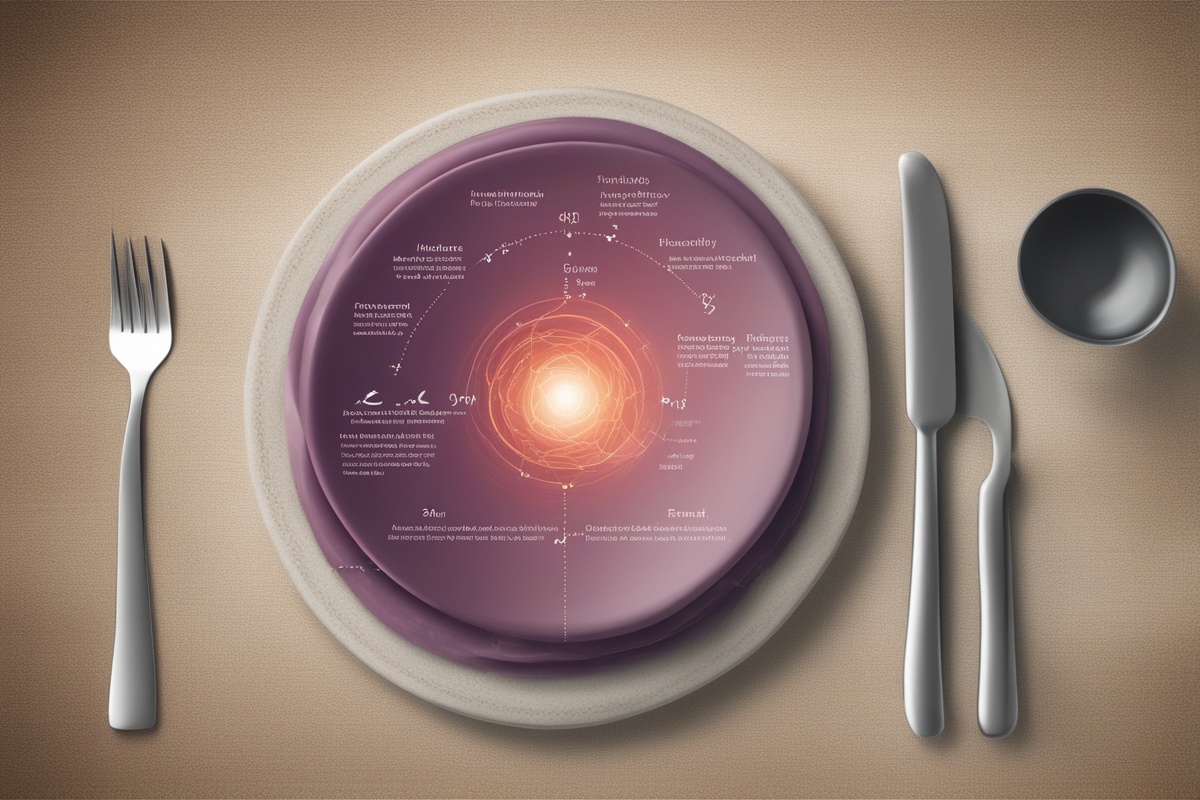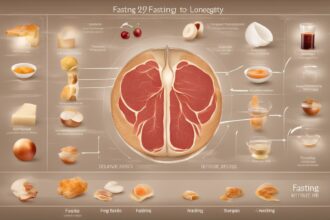Hey there, health enthusiasts! If you’ve been exploring ways to live a longer, healthier life, you’ve likely stumbled across the concept of fasting. But did you know that longevity fasting—a strategic approach to fasting specifically aimed at extending lifespan—has been gaining traction in the wellness world? Fasting isn’t just about weight loss or detoxing; it’s a powerful tool that may help slow aging, improve metabolic health, and even protect against age-related diseases. In this deep dive, we’ll explore what longevity fasting is, the science behind it, and how you can incorporate it into your life with practical, actionable steps. Let’s unpack this fascinating topic together and see how skipping a few meals might just add years to your life!
What Is Longevity Fasting?
Longevity fasting refers to the practice of intentionally abstaining from food for specific periods to promote health benefits that could extend your lifespan. Unlike fasting for weight loss or spiritual reasons, the primary goal here is to trigger biological processes that combat aging. Think of it as giving your body a break to focus on repair and rejuvenation. This could involve intermittent fasting (like the 16:8 method, where you fast for 16 hours and eat during an 8-hour window) or longer fasts, such as 24- to 72-hour water fasts, done periodically. The idea is rooted in the concept that reducing caloric intake or meal frequency can activate pathways in the body linked to longevity, such as autophagy—the process where cells clean out damaged components (Valter Longo, 2018). By integrating fasting for longevity into your routine, you’re not just cutting calories; you’re potentially resetting your body at a cellular level.
The Science Behind Fasting and Longevity
So, why does fasting seem to have such a profound impact on aging? The science is pretty compelling. Research shows that fasting can reduce oxidative stress and inflammation—two major drivers of aging and chronic disease (Mattson et al., 2017). When you fast, your body shifts from using glucose as its primary fuel to burning fat through a process called ketosis. This metabolic switch not only improves insulin sensitivity but also boosts the production of brain-derived neurotrophic factor (BDNF), a protein linked to brain health and longevity. Studies on animals have demonstrated that caloric restriction and fasting can extend lifespan by up to 30%, and while human studies are still ongoing, early results suggest similar benefits (Fontana & Partridge, 2015). Fasting also mimics the effects of caloric restriction without the need to chronically under-eat, making it a more sustainable option for many. Essentially, longevity fasting benefits come from giving your body a chance to repair DNA, recycle old cells, and reduce the burden of metabolic waste.
Key Benefits of Longevity Fasting for Health and Aging
Let’s break down some of the standout benefits of incorporating fasting into your life for longevity. These aren’t just theories; they’re backed by emerging research and real-world results. Here’s what fasting for a longer life can do for you:
- Improved Cellular Repair: Fasting triggers autophagy, which clears out damaged cells and proteins, potentially reducing the risk of diseases like cancer and Alzheimer’s (Levine & Kroemer, 2019).
- Better Metabolic Health: Fasting lowers blood sugar levels and improves insulin sensitivity, key factors in preventing type 2 diabetes and promoting longevity (Barnard et al., 2019).
- Heart Health Support: Studies suggest fasting can reduce blood pressure, cholesterol, and triglycerides, all of which are critical for cardiovascular longevity (Trepanowski et al., 2017).
- Enhanced Brain Function: Fasting boosts BDNF levels, which may protect against neurodegenerative diseases and improve cognitive function as you age (Mattson et al., 2017).
These benefits highlight why so many people are turning to longevity through fasting as a natural way to support their health over the long haul. It’s not a quick fix; it’s a lifestyle shift with profound ripple effects.
How to Start Longevity Fasting Safely
Ready to give longevity fasting a try? That’s awesome, but let’s make sure you do it safely and effectively. Fasting isn’t a one-size-fits-all approach, and jumping in without preparation can lead to fatigue, irritability, or worse. Here are some practical tips to ease into fasting for longevity while minimizing risks:
- Start Small: If you’re new to fasting, begin with a 12:12 schedule (12 hours fasting, 12 hours eating) before progressing to 16:8 or longer fasts.
- Stay Hydrated: Drink plenty of water during fasting periods to avoid dehydration, and consider black coffee or herbal tea to curb hunger.
- Listen to Your Body: If you feel dizzy or unwell, break your fast with a small, nutrient-dense meal and consult a healthcare provider.
- Focus on Nutrition: When you do eat, prioritize whole foods like vegetables, lean proteins, and healthy fats to support your body’s repair processes.
- Avoid Overdoing It: Longer fasts (beyond 24 hours) should be done under medical supervision, especially if you have pre-existing conditions.
Remember, the goal of longevity fasting isn’t to push your body to extremes but to create a sustainable habit that supports your health. Consult with a doctor or nutritionist if you’re unsure about how fasting fits into your lifestyle, especially if you’re pregnant, have diabetes, or are on medication.
Common Myths About Fasting and Longevity Debunked
Despite the growing popularity of fasting, there are still plenty of misconceptions floating around. Let’s clear up a few myths about fasting for a longer life so you can approach it with confidence. First, many believe fasting means starving yourself, but that’s far from true. When done correctly, fasting is about timing your meals, not depriving your body of nutrients. Another myth is that fasting slows your metabolism—research actually shows it can temporarily boost metabolic rate as your body adapts to using fat for fuel (Barnard et al., 2019). Lastly, some think fasting is only for the young and fit, but studies indicate that even older adults can benefit from modified fasting protocols under guidance (Fontana & Partridge, 2015). By busting these myths, we can better appreciate how longevity through fasting is accessible to a wide range of people when tailored appropriately.
Combining Longevity Fasting with Other Healthy Habits
Fasting alone isn’t a magic bullet for a longer life—it works best when paired with other healthy habits. Think of longevity fasting as one piece of a larger puzzle. For instance, regular physical activity, even light exercise like walking or yoga, can amplify fasting’s effects on metabolic health and muscle preservation. Sleep is another critical factor; poor rest can counteract the benefits of fasting by increasing stress hormones like cortisol. Aim for 7–9 hours of quality sleep per night to support cellular repair during fasting windows. Nutrition outside of fasting periods matters too—focus on a Mediterranean-style diet rich in antioxidants to fight aging at the cellular level. Lastly, stress management through mindfulness or meditation can enhance the mental clarity often reported during fasting. By weaving these habits into your routine, you’ll maximize the longevity fasting benefits and create a holistic approach to aging gracefully.
As we’ve explored, longevity fasting offers a promising path to not just living longer, but living better. From triggering cellular repair to improving heart and brain health, the science behind fasting for longevity is hard to ignore. By starting slow, staying informed, and pairing fasting with other healthy habits, you can tap into its potential to transform your wellness journey. Remember, this isn’t about deprivation—it’s about giving your body the space to heal and thrive. So, why not give it a try? Start with a simple fasting schedule, listen to your body, and see how this ancient practice can fit into your modern life. Here’s to unlocking the secrets of a longer, healthier future, one fast at a time!
References
- Barnard, N. D., Goldman, D. M., Loomis, J. F., Kahleova, H., Levin, S. M., Neabore, S., & Baticado, E. (2019). Plant-based diets for cardiovascular safety and performance in endurance sports. Nutrients, 11(1), 130. https://doi.org/10.3390/nu11010130
- Fontana, L., & Partridge, L. (2015). Promoting health and longevity through diet: From model organisms to humans. Cell, 161(1), 106-118. https://doi.org/10.1016/j.cell.2015.02.020
- Levine, B., & Kroemer, G. (2019). Biological functions of autophagy genes: A disease perspective. Cell, 176(1-2), 11-42. https://doi.org/10.1016/j.cell.2018.09.048
- Mattson, M. P., Longo, V. D., & Harvie, M. (2017). Impact of intermittent fasting on health and disease processes. Ageing Research Reviews, 39, 46-58. https://doi.org/10.1016/j.arr.2016.10.005
- Trepanowski, J. F., Kroeger, C. M., Barnosky, A., Klempel, M. C., Bhutani, S., Hoddy, K. K., … & Varady, K. A. (2017). Effect of alternate-day fasting on weight loss, weight maintenance, and cardioprotection among metabolically healthy obese adults: A randomized clinical trial. JAMA Internal Medicine, 177(7), 930-938. https://doi.org/10.1001/jamainternmed.2017.0936
- Valter Longo, D. (2018). The Longevity Diet: Discover the New Science Behind Stem Cell Activation and Regeneration to Slow Aging, Fight Disease, and Optimize Weight. Avery Publishing Group.






